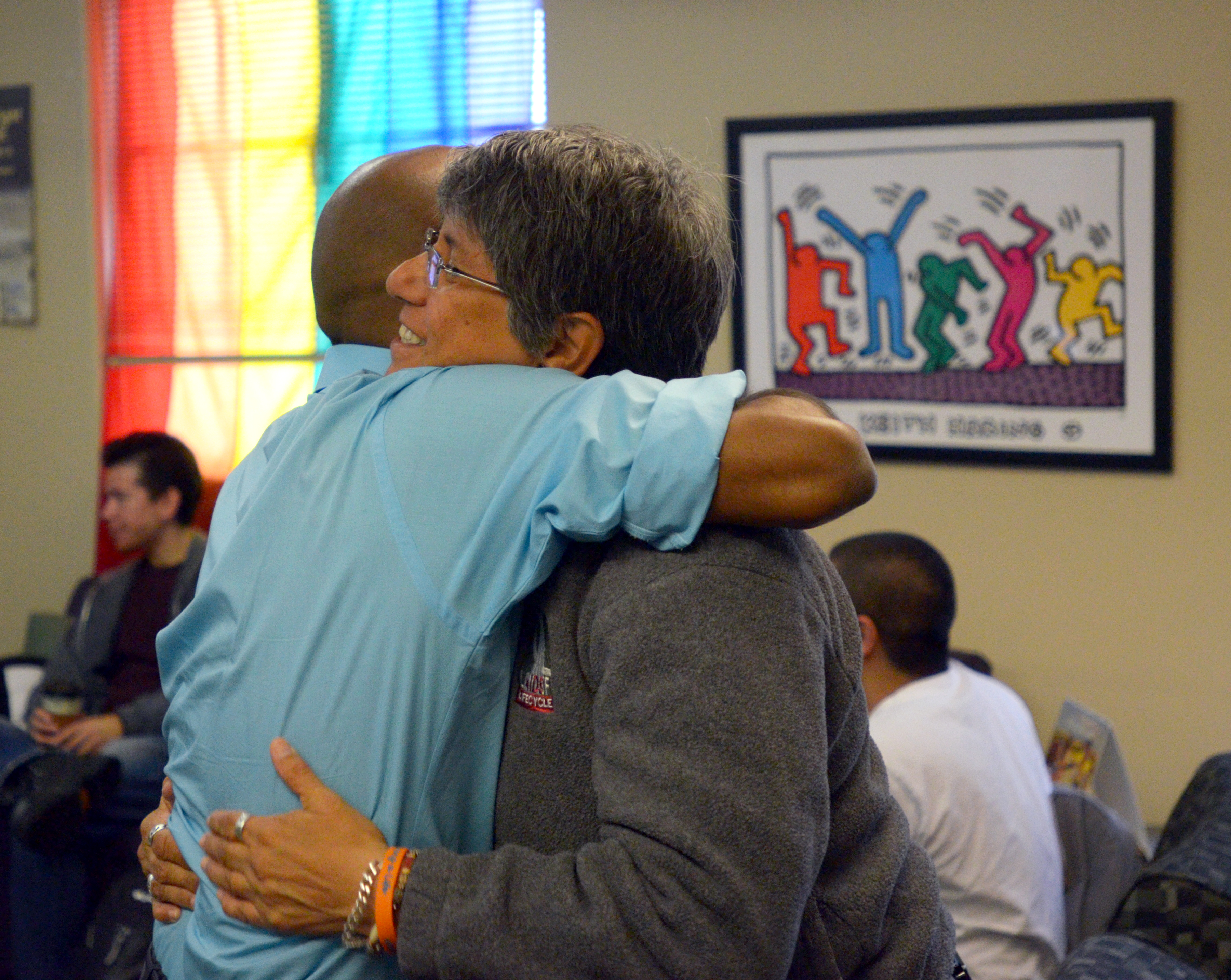
Students gathered in the LGBT Campus Resource Center to celebrate the overturning of California’s same-sex marriage ban.
A California state ban on same-sex marriage was ruled unconstitutional by a federal appeals court Tuesday, a move cheered by members of the UCLA lesbian, bisexual, gay and transgender community, though same-sex marriages will not resume immediately.
The Ninth Circuit Court of Appeals announced its decision Tuesday morning. The ruling cited the 14th Amendment, which prohibits states from denying any person within their jurisdiction equal protection of the law.
“Proposition 8 serves no purpose and has no effect, other than to lessen the status and human dignity of gays and lesbians in California and to officially declassify their relationships and families as inferior to those of opposite-sex couples,” the opinion read.
The central implication of this most recent ruling is its potential to strike down the same-sex ban, or Proposition 8, in California, said Gary Gates, a senior research fellow for the Williams Institute at the UCLA School of Law.
Proposition 8, which voters approved in November 2008, limits the state’s recognition of marriage as a partnership between a male and female.
Proponents of Proposition 8 said they would try to appeal the decision, according to a statement by the Alliance Defense Fund, which provided legal counsel in defense of Proposition 8. That could involve either asking the nine judges in the appeals court to hear the case again or filing the case to the Supreme Court for a final hearing.
Meanwhile, celebration broke out in the LGBT community on campus at the announcement of the news. LGBT Campus Resource Center Director Raja Bhattar immediately sent out an email, inviting members of the center to a spontaneous celebration at their offices in the Student Activities Center.
Students packed in to talk and eat an assortment of snacks. One attendee, Airon Bongon, a fourth-year art history student and president of Delta Lambda Phi, a fraternity for gay, bisexual and progressive students, said he felt the ruling was a small but significant step toward marriage equality.
Kush Babaeian, a third-year sociology student, said the ruling was significant for people both inside and outside of the LGBT community.
“I don’t look at it as a gay rights thing, I look at it as a human rights thing,” Babaeian said.
The decision did not necessarily come as a surprise to legal experts or supporters of the measure.
Based on transcripts from oral arguments from the case, it seemed like the judges were not convinced by the arguments from supporters of Proposition 8, said Adam Winkler, a professor at the UCLA School of Law who specializes in constitutional law.
Brian Raum, senior counsel for the Alliance Defense Fund, also expected the ruling, according to a statement.
“We are not surprised that this Hollywood-orchestrated attack on marriage ““ tried in San Francisco ““ turned out this way,” Raum said in the release.
Tuesday’s decision parallels a similar ruling by federal Judge Vaughn Walker in August 2010.
Further legal review will need to take place before same-sex marriages in California can resume.
The appeals court is expected to issue a stay order soon, which would keep the ban on same-sex marriage from expiring, Winkler said. Stay orders are common when courts are dealing with controversial issues, he added.
In unsettled issues of the law, lower courts will keep their rulings from going into effect until the higher court decides whether or not to take on the case, he said.
Winkler said he anticipates it will take another year for the appeals process to be completed.
